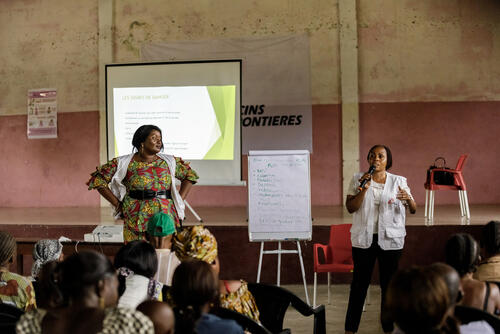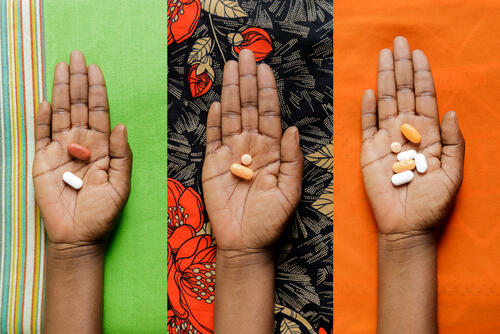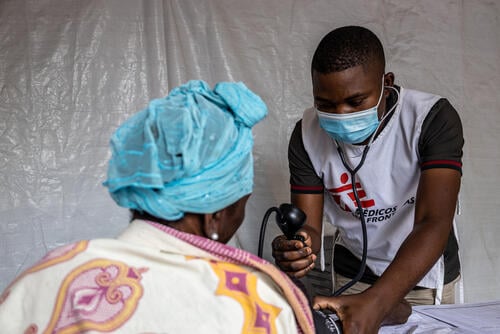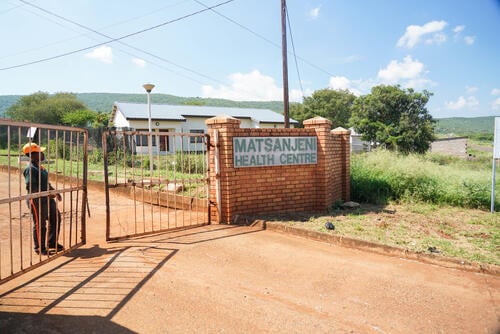- MSF calls on pharmaceutical company ViiV to make information public on HIV-prevention drug long-acting cabotegravir.
- The drug is the most effective form of pre-exposure prophylaxis, preventing new HIV infections.
- The company must reprioritise its global distribution to people at highest risk of contracting HIV, especially in low- and middle-income countries.
Geneva – Pharmaceutical corporation ViiV must immediately provide transparency on the current available volume and planned geographic distribution of long-acting cabotegravir (CAB-LA), an HIV prevention medicine, says Médecins Sans Frontières (MSF). There is an urgent need to expedite the drug’s access for people in high-HIV-burden and low- and middle-income countries, where it could have the biggest impact on preventing HIV infections.
CAB-LA, administered as an injection every two months, is currently the most effective form of pre-exposure prophylaxis (PrEP) for people at high risk of contracting HIV,People at high risk of contracting HIV are determined by a clinical risk assessment and can include key populations (sex workers, men who have sex with men, people who inject drugs, people in prisons and transgender people) and their sexual partners, as well as people in general populations, such as women and girls. and is more discreet than the once-daily oral PrEP pill. CAB-LA could be key to turning the tide against new HIV infections, particularly as the daily oral PrEP pill can be a burden that undermines adherence.
Honestly, ViiV should be ashamed: it has a lifesaving HIV prevention drug at its fingertips but is failing to ensure there’s enough available for people who need it.Dr Helen Bygrave, chronic disease advisor for MSF’s Access Campaign
However, ViiV’s continued lack of transparency around CAB-LA's current available supply and how it will be distributed, as well as clinical research conditions set by ViiV for procurement, are acting as barriers to accessing this medicine, particularly in low- and middle-income countries.
“Honestly, ViiV should be ashamed: it has a lifesaving HIV prevention drug at its fingertips but is failing to ensure there’s enough available for people who need it,” says Dr Helen Bygrave, chronic disease advisor for MSF’s Access Campaign. “They’re providing no transparency as to where currently available supplies of CAB-LA are being used.”
Viiv has been unable to assure MSF of the availability of any amount of long-acting cabotegravir for MSF medical programmes in Eswatini and Mozambique in 2023, where we plan to start offering the drug to people at high risk of HIV. With ViiV needing a six-month lead-time to process MSF’s order, their failure so far to provide transparency on CAB-LA’s availability and price may result in the drug not reaching people in our care in 2023; the wait time for many people may be over two years.

“For over eight months, we’ve been in contract negotiations with ViiV to procure CAB-LA for use in MSF programmes,” says Dr Bygrave. “Viiv has been adamant that there would be sufficient supply of CAB-LA – astonishingly even arguing that demand for the drug would be low.
“And yet, we’re currently unable to procure CAB-LA to meet the demand we’re seeing in our medical programmes and hearing about in our discussions with health officials in low- and middle-income countries,” says Dr Bygrave.
For people who need CAB-LA, ViiV’s access strategy is irresponsible and short-sighted. Their current global monopoly and supply is unable to meet urgent global health needs, which is concerning as it may take as long as four to five years for generic companiesIn July 2022, ViiV and the Medicines Patent Pool announced that three generic-drug manufacturers had been selected to produce CAB-LA under a voluntary license agreement. to make generic CAB-LA commercially available.
Until there are more producers on the market and normal procurement can proceed with appropriate supplies of CAB-LA, the corporation must reprioritise its global distribution to people at highest risk of contracting HIV.Dr Helen Bygrave, chronic disease advisor for MSF’s Access Campaign
“It is infuriating that ViiV is deciding where CAB-LA will be available regardless of urgent health needs. Until there are more producers on the market and normal procurement can proceed with appropriate supplies of CAB-LA, the corporation must reprioritise its global distribution to people at highest risk of contracting HIV, especially in low- and middle-income countries. This will have the biggest impact in terms of preventing disease,” says Bygrave.
Notes:
CAB-LA was recommended for HIV prevention by the World Health Organization (WHO) in July 2022.
Viiv’s efforts to scale up its own manufacturing and supply capacity by increasing batch size and opening a second manufacturing facility are overdue and unlikely to see results until sometime in 2024.






